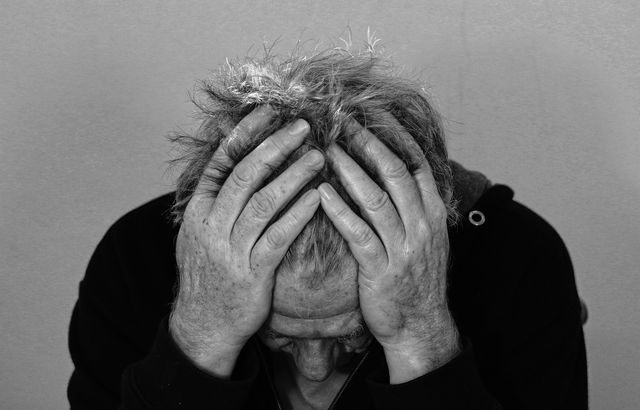
Everybody knows occasional mood swings. However, if they are very extreme or burden you in your everyday life, you should get to the bottom of the cause in more detail.
Mood swings: It depends on the severity
Most people know a slight ups and downs of feelings. We are permanently exposed to a wide variety of environmental influences and internal biochemical processes, to which we react automatically and directly. As a result, our mind is also in constant change. Moderate changes in your mood, the alternation of happier days and lazy days are in many cases quite natural.
Only when your mood is in a strong and rapid change, one speaks of mood swings, or pathological (pathological) mood swings. The changes in mood can then often not be directly explained by external circumstances. As soon as the fluctuations become stressful for you, limit your everyday life and you brood more and more about their causes, you should seek medical advice.
When should you seek medical advice?

(Photo: CC0 / Pixabay / StockSnap)
In the following cases you should always seek medical advice:
- The emotional roller coaster lasts for days or occurs again and again.
- Your mood fluctuates greatly, for example between euphoria and depression.
- You cannot explain your own emotional fluctuations.
- Other physical or psychological symptoms become noticeable.
- Your moods burden you so much that you feel restricted in everyday life.
Common causes of mood swings



(Photo: CC0 / Pixabay / geralt)
Mood swings can have numerous causes. First of all, you should be aware of how often and how severe the mood swings occur. You should also clarify whether there are similar cases in your family.
Mood swings can also have physical causes or be an accompanying symptom of other diseases or deficiencies. Common causes are:
- Premenstrual Syndrome (PMS): Between ovulation and the start of menstruation, some women experience special symptoms, often psychological and physical nature are. Also Mood swings these include.
- migraine: In the so-called Prodromal phase, the phase before the onset of the typical migraine headache, numerous symptoms can occur, including mood swings. This phase can last for hours or days and varies from patient to patient. Even if you haven’t heard anything yet migraine had to do, you should consider them. It can occur at any age.
- Magnesium deficiency: Magnesium deficiency can also cause mood swings to lead. You can determine whether you have such a deficiency using a blood count. You may then be prescribed supplementary supplements.
- Sodium deficiency: So-called hyponatremia, an undersupply of the vital mineral sodium, can be serious consequences to have. Also Listlessness, Mood swings or a headache these include.
Even more serious illnesses like dementia, multiple sclerosis, Parkinson’s or mental disorders like Bipolarity and Borderline can cause mood swings. In most cases, these diseases also have other symptoms that can be diagnosed by a doctor.
In the course of our lives there are also phases in which something changes physically, such as:
- puberty
- Menopause
- pregnancy and the Time after birth
In these phases complex hormonal change processes take place in the body. Changes in feeling can then also occur to a greater extent and are generally still counted among the normal fluctuations. If you are in a phase of hormonal upheaval and suffer from severe mood swings, you can also obtain medical tips for relief here.
What to do even if you have mood swings
Does your mood swings have an illness that requires treatment or a Nutritional deficiency you will work out a suitable therapy together with your doctor. In addition, you can also contribute to faster healing yourself on your own initiative.
Home remedies for mood swings
- Soothing medicinal plants such as lemon balm, valerian or lavender can have a balancing effect if taken regularly. Also Johannis herbs should have a mood-enhancing, balancing effect.
- Herbal preparations based on Black cohosh should also be used in the case of hormone-related mood swings relief create.
- When the mood fluctuates, there is often an increased intake of L-tryptophan devices. The protein building block ensures the formation of the “happiness hormone” serotonin in your body and is therefore direct influence on your mood, your sleep rhythm and general well-being. You can take L-tryptophan in tablet form or take it in through your food. There is a particularly large amount of it in potatoes, nuts, milk, cheese and poultry.
Important: Home remedies are no substitute for drug therapy and should always be done in consultation with a doctor. Try out what is good for you and choose the home remedies to support the therapy discussed.
Read more on Utopia:
- Low blood pressure: get your circulation going with home remedies
- 7 ways out of the winter depression
- Ikigai: That’s behind the Japanese philosophy